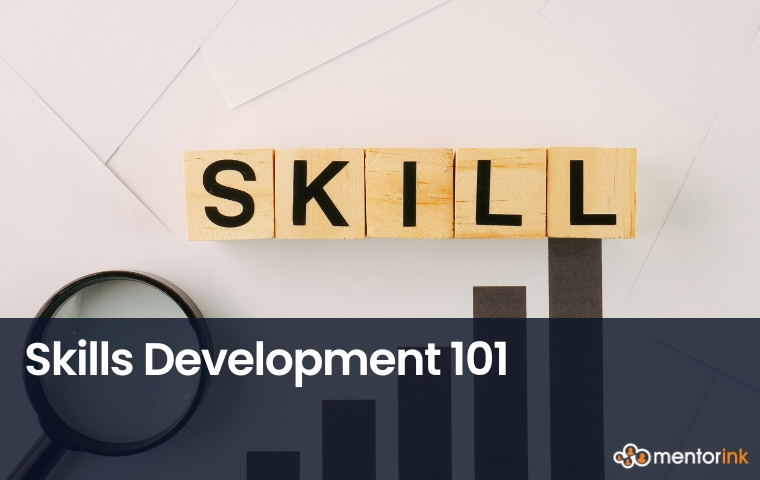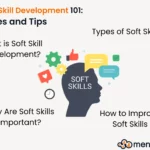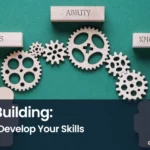
Skill development describes the process of learning new skills and improving existing talents to enable individuals to be successful in their personal and professional lives. It helps individuals adapt more quickly to changing work and living conditions and stand out in their careers. Today, business life is constantly evolving and changing. Many factors, such as technology and globalization, affect work styles, expectations, and requirements. Therefore, everyone who works and seeks a job must constantly improve themselves and learn new skills.
What is Skills Development?
Skill is defined as the ability to perform a task, mentally and physically, correctly and as quickly as possible; to produce a certain result. So what is skill development? Skill development is the education, course, internship, mentoring, etc., activities used to develop existing skills, gain new skills, and acquire skills in different areas.
The skill development process helps individuals renew themselves, adapt more easily to changing work conditions, and move to the next level in their careers. For example, strengthening an employee’s communication skills can enable them to be an effective employee or team leader in the work environment. Skill development has an important place both individually and socially.
What are Some Effective Methods for Skills Development?
In a professional environment, new skills can be acquired by combining many different methods. When skill development examples are examined, it is seen that the methods that can be applied to improve the skills of employees are provided by training, self-assessment, and networking.
Course and Training
Offering training and course options in the skill development process allows employees to be more active in areas where they are interested in or can observe their daily routines and tasks. This method can be planned both online and face-to-face. At the same time, it is one of the easiest methods to implement by integrating it into daily life. To support this approach, many organizations are turning to structured corporate training solutions that align skill development with real workplace challenges. These solutions help bridge the gap between theoretical knowledge and practical application in various professional settings.
Cross-Training Programs
Cross-training aims to teach employees new skills outside of their primary roles. Those programs require the organization to implement a structured training plan. It can also be supported through on-the-job training or job rotation, where employees observe employees in different departments and different teams.
Feedback and Self-Assessment
Getting regular feedback and evaluating individual development accelerates the skills development process. In particular, recognizing strengths and weaknesses facilitates the process of setting correct goals.
Networking and Mentoring
Mentors provide guidance in acquiring new skills. For example, a mentor can provide opportunities to develop leadership skills. Networking provides the opportunity to establish professional networks and share knowledge in different areas of expertise during the skill development process.
What are Types Of Skills
Skills fall into three main categories: cognitive, technical, and interpersonal. Each type of skill represents a different area of competence and makes up an individual’s overall talent portfolio.
Cognitive Skills
Cognitive skills are abilities such as critical thinking, problem-solving, and decision-making. These types of skills are important in analyzing complex situations and producing effective solutions.
Examples of Cognitive Skills:
- Memory: The ability to remember and store information. For example, remembering childhood memories, memorizing mathematical formulas, and remembering shopping lists.
- Attention: Represents the ability to focus by filtering out distracting details. For example, focusing on a book, listening carefully to a lesson, and being able to have a conversation while driving.
- Executive Function: Problem-solving and planning skills. For example, solving mathematical problems correctly, making conscious decisions, and developing creative solutions.
- Language and Communication: The ability to express ideas clearly and understand others.
- Spatial Awareness: Being able to navigate and perceive the physical world. For example, finding directions on a map and creating artistic works.
Technical Skills
Technical skills are specialized skills required for a particular occupation or industry group. These skills are developed through practice and educational options.
- Data analysis
- Knowledge of computer programming languages
- Web development
- Accounting
- Financial management
- UX/UI design
- Writing
- Graphic design
Interpersonal Skills
Interpersonal skills are used in social interactions such as communication, empathy, and teamwork. Such skills play a critical role in team management and customer relations. Interpersonal skills can be considered soft skills. You can get more information about soft skills development via “Soft Skill Development 101: Types and Tips.”
Examples of Interpersonal Skills:
- Teamwork: Helping everyone on a team understand their roles and effectively collaborating to achieve a common goal.
- Active Listening: Listening carefully to a colleague and identifying or learning the necessary solutions by empathizing.
- Situation Management: Acting as a bridge between the parties in the event of a disagreement at work and resolving the problem in a controlled manner.
- Persuasion Ability: Convincing a customer of the value of a product or service or convincing a teammate that a new idea is viable.
- Effective Communication: Expressing ideas clearly, concisely, and professionally.
- Networking: Meeting new people and developing professional relationships.
How Mentoring Help To Improve Skills Development?
Mentoring supports individuals in their skills development process by providing constructive feedback and real-world insights, accelerating the learning process, and improving their problem-solving skills.
It also helps develop self-awareness, identify strengths and weaknesses, and learn leadership roles. Mentoring also broadens functional perspectives and teaches the ability to make multi-faceted decisions by considering various organizational factors.
Also, help develop networking; establish professional connections for knowledge exchange, industry insights, and new career opportunities. They help them become better at human interactions by developing interpersonal skills.


